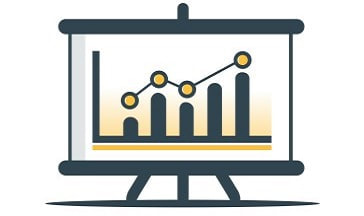CMC Markets vs Plus500 vs IG vs BlackBull Markets
This guide overviews the differences, similarities, strengths and weaknesses of the most well-known CFD and Forex Platforms available in New Zealand.
Updated 24 April 2024
Know this: Our CFD and Forex Trading guides are continuously updated to help everyday New Zealanders understand the risks of trading forex and CFDs products. MoneyHub is conservative and risk-averse – for these reasons, we remain cautious about using these platforms. The inclusion of any CFD or FX Trading Platform (known as “brokers”) on MoneyHub is not an endorsement. We have no relationship with any company or platform mentioned in these guides.
Our comparison guide summarises the opportunities and differences between the following brokers:
Our CMC Markets vs Plus500 vs IG Market vs BlackBull Markets guide covers:
Disclaimer: By publishing this guide, we do not recommend any of these brokers, nor do we suggest one is better than the others. The brokers have been covered as they are popular choices for New Zealand forex and CFD traders, and they are all FMA authorised derivative issuers.
Warning: Trading Forex and CFDs is risky
Trading forex and CFDs is incredibly risky, and it’s well documented that most retail traders lose money. If you’re new to the concept of trading forex and CFDs, before even thinking about which broker to choose, we strongly suggest you read our comprehensive introductory guides:
Advertising Disclosure: We may earn a referral bonus for anyone that clicks on some of the below links - see our Advertising Policy for more details.
Know this: Our CFD and Forex Trading guides are continuously updated to help everyday New Zealanders understand the risks of trading forex and CFDs products. MoneyHub is conservative and risk-averse – for these reasons, we remain cautious about using these platforms. The inclusion of any CFD or FX Trading Platform (known as “brokers”) on MoneyHub is not an endorsement. We have no relationship with any company or platform mentioned in these guides.
Our comparison guide summarises the opportunities and differences between the following brokers:
Our CMC Markets vs Plus500 vs IG Market vs BlackBull Markets guide covers:
- CFD trading instrument comparison
- Notable characteristics of each broker
- Which forex broker should you choose?
Disclaimer: By publishing this guide, we do not recommend any of these brokers, nor do we suggest one is better than the others. The brokers have been covered as they are popular choices for New Zealand forex and CFD traders, and they are all FMA authorised derivative issuers.
Warning: Trading Forex and CFDs is risky
Trading forex and CFDs is incredibly risky, and it’s well documented that most retail traders lose money. If you’re new to the concept of trading forex and CFDs, before even thinking about which broker to choose, we strongly suggest you read our comprehensive introductory guides:
Advertising Disclosure: We may earn a referral bonus for anyone that clicks on some of the below links - see our Advertising Policy for more details.
|
Are you looking to sign up to a broker? BlackBull Markets is a trusted NZ-based broker offering competitive trading options with the following advantages:
|
CFD trading instrument comparison
The first step to choosing a broker is checking if they offer the products you want to trade. Here is a helpful summary of the markets provided by our sample of four New Zealand brokers.
Know This First: Trading instruments and conditions
Know This First: Trading instruments and conditions
- All the brokers considered in this guide offer derivative products, which are primarily CFDs. This means you can speculate on the underlying assets, such as shares, commodities or currency pairs, but you never buy or own the assets.
- All trades placed with these brokers are settled in cash by adjusting the balance of your trading account.
As you can see from the table above, BlackBull Markets is focused on forex pairs, whereas the rest of the brokers offer thousands of instruments across several asset classes.
Average spreads
The spread is the difference between the bid and ask price, which are the prices you sell at or buy for. For example, if the quote for NZD/USD is 0.71985 (bid) / 0.7205 (ask), it means the spread is 65 points or 6.5 pips. Spreads fluctuate according to market conditions and vary depending on the instrument. Most brokers offer the tightest spreads on pairs like EUR/USD, GBP/USD and GBP/EUR, which are the most traded and therefore liquid pairs. Many brokers will advertise the spreads on their most competitive pairs, but the spreads become less competitive on some trading pairs, as you will see in the table below.
Instrument |
CMC |
Plus500 |
IG |
BlackBull |
EUR/USD |
0.7 (min.) |
0.8 (real) |
1.13 (avg.) |
1.3 (real) |
GBP/USD |
0.9 (min.) |
1.3 (real) |
1.66 (avg.) |
1.7 (real) |
NZD/USD |
1.8 (min.) |
2.2 (real) |
2.30 (avg.) |
N/A |
AUD/NZD |
2.7 (min.) |
2.5 (real) |
3.77 (avg.) |
3.0 (real) |
GBP/NZD |
Value |
8 (real) |
7.07 (avg.) |
3.4 (real) |
Leverage and margin requirements
The most tempting and precarious characteristics of trading forex or CFDs are the infamously low margin requirements. Some brokers offer as much as 1:500 leverage for traders in New Zealand. The Australian Securities Exchange Commission (ASIC) recently capped how much leverage brokers may provide clients with not greater than 1:30. However, all brokers referenced here have derivative issuer licenses from the FMA, where such rules don’t exist. The table below offers a summary of margin requirements for some popular trading instruments.
Instrument |
CMC |
Plus500 |
IG |
BlackBull |
EUR/USD |
1:500 (0.2%) |
1:300 (0.33%) |
1:200 (0.5%) |
1:500 (0.2%) |
ASX200 |
1:200 (0.5%) |
1:150 (0.67%) |
1:200 (0.5%) |
1:500 (0.2%) |
Gold |
1:200 (0.5%) |
1:150 (0.67%) |
1:200 (0.5%) |
1:500 (0.2%) |
Bitcoin |
1:5 (20%) |
1:5 (20%) |
1:10 (10%) |
N/A |
Brent |
1:125 (0.75%) |
1:50 (2%) |
1:67 (1.5%) |
N/A |
Apple ($AAPL) |
1:5 (20%) |
1:5 (20%) |
1:5 (20%) |
1:5 (20%) |
Important: From the 29th of March 2021, the leverage offered to retail traders by IG Markets, Plus500, and other Australian brokers will be reduced according to recent product intervention measures introduced by the Australian Securities Exchange Commission. According to the new rules, the maximum leverage that Australian brokers can give is 1:30 and can be lower depending on the product. One caveat is that these rules do not apply to self-elected professional traders.
Minimum Deposit
If you’re trading CFDs on a live account for the first time, it’s wise to start with a lower amount to reduce your risk should things not go according to plan. Here are the minimum amounts you need to open an account with the four brokers.
CMC |
Plus500 |
IG |
BlackBull |
$0 |
NZ$100 |
US$450 |
US$50 |
Trading platforms
A trading platform is your gateway to the world’s financial markets. Every trading platform has unique characteristics and aesthetics. The New Zealand brokers we’ve sampled in this guide each offer various platforms, and it’s worth looking at each of them in more detail.
CMC |
Plus500 |
IG |
BlackBull |
Next Generation (proprietary) MT4 |
Plus500 Trading Platform (proprietary) |
IG Trading Platform (proprietary) ProRealTime L2 Dealer (proprietary) MT4 |
MT4 MT5 |
Demo accounts
Having access to a demo account is essential to test drive the trading platforms offered by the brokers you’re considering. The table below highlights how long each broker provides access to demo accounts.
CMC |
Plus500 |
IG |
BlackBull |
No time restriction |
No time restriction |
No time restriction |
30 days |
Live accounts
Some brokers keep it simple, offering a single trading account for all clients, while others offer multiple accounts tailored to different trading strategies and account sizes.
CMC |
Plus500 |
IG |
BlackBull |
CFD account Corporate account |
One account for all traders |
OTC DMA |
Standard Prime Institutional Islamic Active Trader |
Location
Although the FMA authorises all of the brokers mentioned in this guide, only CMC Markets and BlackBull Markets are physically based in New Zealand with premises clients can see and visit. IG Markets and Plus500 operate their businesses from Australia. Although online trading is an online activity, some investors might find comfort that their trading partner is close by.
Notable characteristics of each broker
Before concluding this comparison of the above four options, each broker has a few notable characteristics that differentiate them:
IG Markets offers weekend trading
A truly unique feature offered by IG Markets are trading products available over the weekend. They offer a handful of currency pairs, indices and cryptocurrencies. Perhaps you don’t have time to trade on the weekdays, so IG Markets accommodating you on the weekends might be a winning feature.
Plus500 offers deposit bonuses
When you deposit with Plus500 for the first time, you might qualify for a bonus, which is essentially a credit to give your account a boost. The size of the bonus corresponds with the amount you deposit. The minimum you need to deposit to qualify for the bonus is NZ$400 to get a bonus of NZ$100. There are several tiers in total. The bonus can be withdrawn when the specified trading volume criteria has been met. To get more details on this offer, you should certainly check the terms and conditions thoroughly. Although this is a great advantage, the primary reason for speculating on the markets is to profit from your trades, not bonuses or rewards from brokers. You should be careful with these types of promotions as they can influence over-trading.
BlackBull markets offer virtual servers for algo trading
If automated trading is something you’re interested in, you’ll be interested to know that BlackBull markets offer a virtual private server (VPS) to clients that deposit at least US$2,000 and trade more than 20 lots per month. A VPS allows you to keep the trading platform and your automated strategy running 24-hours a day, with reliable power and internet connectivity and located close to the brokers trading server and liquidity providers.
CMC Markets offer thematic share baskets
If you’re unsure what shares to pick but expect an entire sector to thrive or suffer in the near future, you can trade share baskets offered by CMC Markets. For example, if you foresee the oil and gas sector as bearish and the green energy sector as bullish, you could go short and long of those baskets. The renewable energy sector basket contains 18 prominent US companies producing and distributing solar panels, power plants, battery alternatives, and wind, solar, and hydroelectric power producers. This basket includes Sunrun Inc, Plug Power Inc, NextEra Energy Partners LP, and others.
Which forex broker should you choose?
We cannot provide guidance on this – what broker is best for you comes down to what features you’re looking for and what products you want to trade. Our comprehensive reviews of each platform provide further details. Choosing a broker is not easy, but it’s worth putting in the effort.
|
Are you looking to sign up to a broker? BlackBull Markets is a trusted NZ-based broker offering competitive trading options with the following advantages:
|






